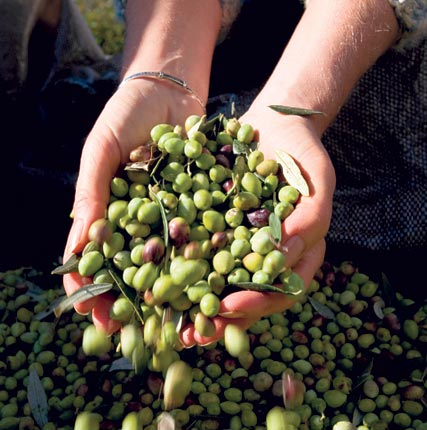Olive oil shock as consumers feel effects of Greece's financial crisis

Putting a bottle of olive oil into your shopping trolley is about to become more expensive because of Europe's financial crisis.
In an unexpected spin-off from the Eurozone contagion hitting Mediterranean countries, Greek producers uncertain about the future of the debt-laden state are hoarding stocks of olive oil rather than selling them on the open market.
As a result, and because of growing demand for olive oil worldwide, prices have risen 20 per cent in a year, according to Britain's biggest olive oil brand, Filippo Berio. Its managing director, Walter Zanre, warned there would be further increases in the cost of the oil, widely used by Britons for frying and as a salad dressing. Greece is the world's third-largest olive oil producer, after Spain and Italy. "Greek growers consider stocks of olive oil in tanks to be a safer bet than cash in a Greek bank," Mr Zanre told The Grocer magazine.
"Greece is a source of high quality extra virgin oil and this is putting additional pressure on prices. At some point the oil will have to be sold but in the short term it could cause a spike in prices."
A spokeswoman for Filippo Berio's distributors, RH Amar, said: "The economic climate in Spain is unstable and if the growers decide they can afford to use their oil as cash in the bank, prices are likely to spike as a result."
Olive oil is already much more expensive than vegetable and seed oils, which have fallen in price this year following large rises last year. At Britain's biggest supermarket, Tesco, yesterday a litre of Napolina extra-virgin olive oil cost £6.49 and a litre of Filippo Berio olive oil was £3.20, against £1.20 for a litre of rapeseed oil.
Even before the latest rises, there were concerns that some olive oils did not represent good value. In a taste test last year, the consumer group Which? found Tesco, Sainsbury's and Felippo Berio and Bertolli Original merited an ordinary three stars out of five, while Asda and Napolini were "below average" with two stars.
Marks & Spencer's and Morrison's oils were given the withering tag "leave on the shelf". By contrast, Which? gave Aldi and Lidl's budget extra-virgin oils four stars, branding them exceptional value at £3.30 a litre.
This week laboratory analysis suggested that many "extra virgin" olive oils sold in the United States were not the top-grade extra-oils their labels purported.
Researchers at the University of California analysed popular brands and found 69 per cent of imported oils did not meet the international standards that define pure, cold-pressed olive oils that deserve the term extra-virgin.
Dan Flynn, executive director of its Olive Oil Centre, which conducted the study in partnership with the Australian Oils Research Laboratory, said: "Consumers, retailers and regulators should really start asking questions."
The North American Olive Oil Association, which represents most olive oil importers, questioned the objectivity of a study financed in part by California olive oil producers.
Speaking about the US market, Mr Flynn said there have long been questions about the quality of some of the olive oil being sold as extra virgin.
Production of extra-virgin oil is time-consuming and expensive and there are suspicions that some unscrupulous companies blend extra-virgin olive oil with cheaper, refined olive oil, or with seed or nut oils.
Subscribe to Independent Premium to bookmark this article
Want to bookmark your favourite articles and stories to read or reference later? Start your Independent Premium subscription today.

Join our commenting forum
Join thought-provoking conversations, follow other Independent readers and see their replies